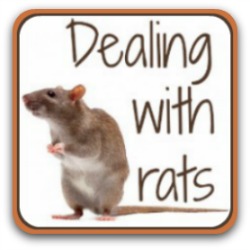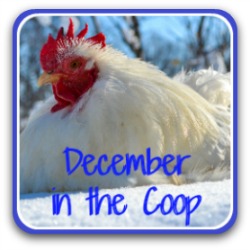- Home
- Challenges
- Flies
Getting rid of flies from the coop: 12 simple remedies (and two to avoid).
Flies are one of the biggest problems chicken-keepers face, especially in the summer months.
Unpleasant, disease carriers and potentially killers of your flock, this article covers why they come, how to prevent them how to deal with them if they've already taken up residence.
Why is it important to get rid of flies?
Research shows the common house fly as responsible for transmitting as many as 65 diseases to humans - probably more.
They include dysentry, cholera, anthrax, poliomyelitis and tuberculosis(1).
And as well as spreading pathogens which create disease in poultry including salmonella, E.coli and Newcastle disease, flies can cause one of the deadliest problems in chicken health: fly strike.
So for you, your family and your chickens, it's important to keep flies away from the coop as much as possible.
All the information here is based on evidenced research rather than the "urban myths" which abound on the internet.
Let's start with preventing flies from disrupting your flock.
Quick links.
This is a long, detailed page. If you want to get to one particular section quickly, use these links. Otherwise, keep reading for all the detail!
How to prevent flies: good husbandry.
There's no doubt about it: the best - and proven - way to keep flies away from the chicken coop is to make the environment as fly-unfriendly as possible.
To do that it's important to know how to attract flies - and then do the opposite.
If you purchase a product through links on this page, I may receive a small commission at no extra cost to you. I only recommend products I have bought (or would buy) myself, and which I believe will genuinely benefit you. You can read my full disclosure policy here.
1. Keep the coop dry.
Flies prefer to lay their eggs in warm, moist surroundings and the larva (maggots) and pupa need that humidity to hatch.
- Make sure your coop has adequate ventilation so that moisture is kept at a minimum. Using a simple fan can help keep air cool and moving.
- Remove waterers from the coop to avoid spills. Chickens don't eat or drink when they're roosted so it's unnecessary unless your flock has to be kept inside.
- If you use the deep litter method, make sure you remove any damp bedding.
- Don't forget the run. Make sure there are no standing pools of water. They will attract both flies and mosquitoes.
 Beware of standing water - it attracts flies and mosquitoes.
Beware of standing water - it attracts flies and mosquitoes.2. Keep bedding clean.
Flies also love anything that's decomposing, including manure (poop). That's where they will choose to lay their eggs. And chickens poop a lot! So keeping both the coop and the run clean is critical - and it costs little apart from your time.
- Clean bedding every day, paying particular attention to under roosts. Remove soiled bedding unless you use the deep litter method, in which case make sure you turn it regularly.
- Consider using a droppings board underneath roosts. The benefit is it can be removed each day, cleaned off and disinfected.
- Consider using sand as bedding in the summer months when flies are at their worst. It keeps the coop much cooler, doesn't retain moisture and is easily cleaned by using something like a kitty-litter scoop to pick up droppings.
- Clean the coop frequently, particularly any ceiling beams and roosts, which is where flies tend to rest at night(2). Try using white vinegar, or make this homemade lavender cleaner.
3. Keep food fresh.
Flies love decaying matter, including food. Because of its moisture content they're particularly partial to spreading bacteria and laying eggs on meat and fish.
It's one of the main attractants for flies, particularly in the summer. So...
- Remove all food from inside the coop. Chickens don't eat at night.
- Clear up any scraps of food, including treats, that have accumulated in the run. Do it every day. Never allow food to go mouldy.
- Collect eggs frequently. Leaving them in the coop makes egg eating more likely - and cracked, half eaten eggs will be a great feast for flies.
- Keep your feed in secure bins and use an automatic feeder which prevents spillage (and keeps rats away as a bonus!). See my review of the best automatic feeder, here.
Preventing flies: exclusion.
This is a simple one: make sure flies have as few entrances as possible to your chicken coop. Think of it in exactly the same way as you would protect your house from flies and mosquitoes.
4. Use screening to keep flies out of the coop.
It's likely you use a tight mesh on windows to stop predators getting into your coop, which will also prevent flies. But there are other potential entrances you can take a look at.
- If your coop has a person-sized door, consider adding a fly screen. On pop doors, hanging strips of plastic from top to bottom won't prevent your chickens getting in, but will keep flies out.
- Ventilation is critical in the chicken coop, but there's no reason why vents can't be also covered in mesh. It will still allow air flow but not unwanted flying visitors.
- Check and cover other, smaller openings. Holes for wiring, gas or solar panels, for example, can provide places easily big enough for a fly to get access.
 Keep flies out with screens.
Keep flies out with screens.5. Keep air moving!
- Flies like still air. If you have electricity in your coop, try adding a small fan, above chicken head height. Keeping air circulating will both help with heat in the summer and at the same time deter flies.
- Do make sure your chickens cannot get hold of the wiring though. Coop fires have been started for that very reason.
Prevention: using natural fly repellents.
No matter how well we manage the surroundings, flies will almost inevitably find their way into the coop and run.
It's at that point that we start looking at keeping flies away from our chickens by using repellents.
Many of these are based on smell. Is there any evidence that flies hate some smells? Anecdotally, yes. Some people swear by some of these remedies.
There is scientific evidence that flies can smell odours which signal a source of food and places to lay eggs - rotting food, for example(3).
In other words, there are certainly smells that attract flies. There's no evidence (that I have found) that there are also smells flies don't like.
So repellents relying on smell may or may not work. If your coop is constantly plagued by flies, they may be worth trying.

Plants that repel flies.
6. Use herb plants to keep flies away.
- Grow a mixture of peppermint, basil, thyme and rosemary as a herb garden, or in pots around your coop and run. Concentrate particularly at the entrance to your coop.
- Hang clippings in the coop; use dried leaves in nest boxes. Be careful not to allow fresh leaves, if used, to remain in bedding. Fresh herbs can go mouldy.
- Lavender is also found by some to be an effective repellent. Easily grown, it's also a powerful antiseptic - there's a recipe here.
7. Home remedies for flies: using essential oils as a spray.
- Using the essential oils from some of these plants, and others, has been developed as an alternative repellent to artificial, chemically-based repellents which are potentially damaging to health and to the environment(4).
- Research has found the most effective oils as fly repellents to be citronella, lemon and eucalyptus(4). I'd add in lemongrass, orange, geranium and lavender oils to that list.
A natural fly repellent recipe.
- Take two cups of vinegar (I've found apple cider vinegar effective).
- Add two cups of water.
- Now add 2 tablespoons vanilla extract.
- Add 40 - 50 drops of any of the essential oils above. I commonly use lavender, tea tree and grapefruit oils.
- Put all these into a spray bottle. Shake to combine and spray liberally in the coop, wherever you see flies hanging out.
8. Hang vanilla air fresheners.
- Many people favour these hanging tree-shaped fresheners which are more commonly used in cars. I haven't tried them, and there's no scientific evidence for their effectiveness, so I can't actively suggest using them. But if you're desperate, they may be worth a try.
- To be effective you'll need to hang at least three of them in the coop at the same time.
- Keep them well away from chickens. They're not meant to be eaten.
How to kill house flies.
So you've done everything you can in terms of good husbandry, you've used all the prevention methods, but you still have flies in your coop.
Or perhaps you have so many already taken up residence that you need to get rid of them before trying the other methods.
The time has come to look at how to kill flies.
9. Use fly predators.
Using fly predators are my favourite way of reducing the fly population. It's ecologically sound, doesn't rely on chemicals and is a natural way of dealing with the problem.
- There are a lot of different types of predator flies; one of the most common is the black soldier fly. A reputable company will consider your postal code and individual situation before deciding which type of fly will best suit your needs.

- The predators do not get rid of adult flies, but instead eat the larva and prevent them turning into flies.
- So, if you already have adult flies around, you'll need to deal with them by some other means (see below) before using predators.
- You'll receive the predators as larvae, which needs to be kept away from chickens who will love to eat them. Once the predator flies hatch, they'll then hunt down and eat the bad flies' larvae.
10. Grow predator plants.
- Carniverouus plants like the Venus Fly Trap (Dionaea muscipula) and Butterwort (Pinguicila) are good for small insects - fruit flies, for example - but house flies need something larger like the Sarracenia or Pitcher Plant.
- The seeds are quite difficult to germinate; you're best looking for this plant at your local nursery.

Get rid of flies with fly traps.
Fly traps are my least favourite way of dealing with a fly problem. In order to attract flies they need to have some form of bait added.
As we've seen, flies are attracted by smell to putrefying matter. So for traps to be effective, they have to start off with a smelly form of bait.
Which attracts flies - that's the goal. And yet my experience is that the bait attracts flies not only from my coop, but from all the coops, houses and fields for a hundred mile radius!
Maybe a bit of an exaggeration - but you get the point. I want to repel flies, not attract them.
Nevertheless, if you decide they're best for your situation, that's fine. There are two types: the commercial traps (often known as "red tops") and the home made variety.
Note: Whichever type of trap you use, place it away from your chicken coop. These traps work by attracting flies - you do not want to attract more into your coop!
11. The best fly trap?
- There are plenty of this type of trap on the market. The one I've found getting the best reviews is the Captivator. (In fact some reviews say it does its job too well!).
- It comes with the bait included, it's non-toxic so fine to use around livestock, and it's reusable - you just need to replace the attractant every so often.
- This trap works very quickly, so fills up. The main issue with it (apart from the smell of the bait!) is finding a way to dispose of the flies without gagging.
- My advice: dig a hole somewhere well away from your coop and run. Undo the top, drop the flies in and fill in the hole as quickly as you can. The smell of rotting flies is not pleasant.
12. Make a DIY fly trap.
Many online descriptions of home made traps advise using honey. Don't do this - you run the risk of trapping and killing precious honey bees. Instead, use a meat-based product to attract the flies.
Alternatively, buy some of the attractant produced commercially.
Personally, I would avoid it - but I offer it for those who don't want to spend money on a commercially produced trap.
- Cut a large plastic bottle (like a lemonade / soda bottle) in half.
- Part fill the bottom half with plain water. Add a small cube of meat, or some pet food.
- Remove the cap from the top half, upend it and place it into the bottom half so that the nozzle reaches just above the water line.
- To attract the flies, spread some pet food or old meat paste around the rim of the upended top half.
- When the water is full, empty it as you would for the commercially-made trap.
And finally: how not to kill house flies.
13. Do chickens eat flies?
That would be an easy way to get rid of them...
And if chickens can catch a fly, she will certainly waste no time in eating it and it won't be a problem.
But think about what we already know about a fly's likes: manure, decaying matter and putrified flesh. And consider the diseases flies can carry.
Not the kinds of things we'd want for our chickens. Make sure if you kill a lot of flies you bury them somewhere well away from your coop. So...
- Don't actively give your chickens flies to eat - find other, healthier treats instead!
14. Two more "do not use" ways to kill flies.
- Fly spray. Don't use it. It's a chemical insecticide and if inhaled - by you or your chickens - can cause damage to the respiratory system.
- Sticky fly traps. You know the ones - the strips you hang and flies stick to them. The problem is, so do chicken feathers. They're pretty gross, and they're not eco-friendly - the flies will decompose but not the papers.

Personally, I avoid these. If you intend to use them, make sure you hang them away from your chickens.
Related articles you'll find useful.
Sources.
A lot of "facts" you'll find on the internet are often people's individual views, based on inaccurate information repeated from poor quality sources.
The information I provide in this article and others is based not just on my own experience, but on evidenced facts from scientific, peer-reviewed research and books from highly respected and experienced poultry keepers such as Gail Damerow.
Some of the trusted sources I have used in this article are these.
1. Jacobs, S: House Flies. Pub. Penn State University, Department of Entomology, 2013.
2. Sanchez-Arroyo, H., and Capinera, J. L.: The House Fly. Pub. University of Florida, Department of Entomology and Nematology.
3. Callahan, K: Large Flies and Odors - Understanding the Link. Pub. Rentokil, 2018.
4. Lee, M. Y: Essential Oils as Repellents Against Arthropods. Pub. Biomedical Research Institute, 2018.
5. Loftin, K. L, et al: Biology and Control of Flies in Poultry Facilities. Pub. University of Arkansas, Department of Agriculture.
6. Fly Predators. Pub. Spalding Labs, 2024.
- Home
- Challenges
- Flies

















